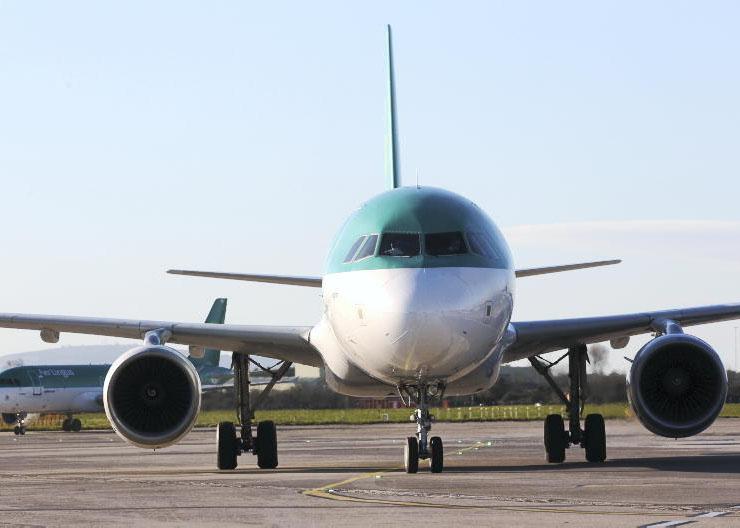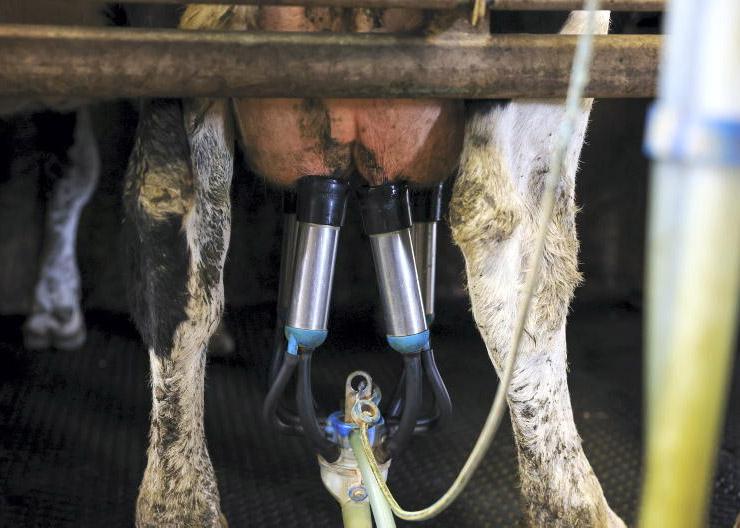A new apprenticeship programme announced by Government this week will aim to tackle labour shortages in agriculture and across the economy.
Minister for Further and Higher Education, Research, Innovation and Science Simon Harris has announced that 17 new apprenticeship programmes will be developed during 2022.
These will include a number of programmes aimed specifically at agriculture.
Among the farming-related programmes are:
A farm manager course which is a Level 7 qualification. A farm technician course which is a Level 6 qualification. A sportsturf management course which is a Level 6 qualification. A stud farm assistant management course which is a Level 7 qualification. An applied horticulture course which is a Level 6 qualification. The development of the new programmes seeks to address serious skills shortages in the economy.
“I’m delighted to announce the development of these new programmes today, which are a vital step towards increasing annual apprenticeship registrations to 10,000 by 2025,” Minister Harris said.
“I will be bringing forward legislation to allow for the delivery of apprenticeships in agriculture, where we will seek to develop apprenticeships in farm manager and farm technician roles,” he added.
In a move which will be welcomed by the agri-food sector, Minister Harris confirmed that an apprenticeship programme is in the pipeline for commercial drivers.
“An apprenticeship in commercial driving is being developed. And this is key as there is a real labour and skill shortage emerging in the transport and haulage sector. These will complement the existing logistics apprenticeships,” he said.
Other areas targeted for new apprenticeship programmes include the construction, engineering and hospitality sectors.
The Department for Further and Higher Education, Research, Innovation and Science pointed out that the approval process for programme development will be transferred from the Apprenticeship Council to the new National Apprenticeship Alliance, which is being established in early 2022.
However, the Department stressed that all apprenticeship programmes will still be employer-led.
Serious labour shortages have been identified in agriculture and food processing over the last year.
The meat industry was given clearance to hire 2,000 non-EU staff last October. A further 1,000 non-EU work permits were issued for the horticulture sector, while 100 permits were also granted for dairy-farm assistants.
A new apprenticeship programme announced by Government this week will aim to tackle labour shortages in agriculture and across the economy.
Minister for Further and Higher Education, Research, Innovation and Science Simon Harris has announced that 17 new apprenticeship programmes will be developed during 2022.
These will include a number of programmes aimed specifically at agriculture.
Among the farming-related programmes are:
A farm manager course which is a Level 7 qualification. A farm technician course which is a Level 6 qualification. A sportsturf management course which is a Level 6 qualification. A stud farm assistant management course which is a Level 7 qualification. An applied horticulture course which is a Level 6 qualification. The development of the new programmes seeks to address serious skills shortages in the economy.
“I’m delighted to announce the development of these new programmes today, which are a vital step towards increasing annual apprenticeship registrations to 10,000 by 2025,” Minister Harris said.
“I will be bringing forward legislation to allow for the delivery of apprenticeships in agriculture, where we will seek to develop apprenticeships in farm manager and farm technician roles,” he added.
In a move which will be welcomed by the agri-food sector, Minister Harris confirmed that an apprenticeship programme is in the pipeline for commercial drivers.
“An apprenticeship in commercial driving is being developed. And this is key as there is a real labour and skill shortage emerging in the transport and haulage sector. These will complement the existing logistics apprenticeships,” he said.
Other areas targeted for new apprenticeship programmes include the construction, engineering and hospitality sectors.
The Department for Further and Higher Education, Research, Innovation and Science pointed out that the approval process for programme development will be transferred from the Apprenticeship Council to the new National Apprenticeship Alliance, which is being established in early 2022.
However, the Department stressed that all apprenticeship programmes will still be employer-led.
Serious labour shortages have been identified in agriculture and food processing over the last year.
The meat industry was given clearance to hire 2,000 non-EU staff last October. A further 1,000 non-EU work permits were issued for the horticulture sector, while 100 permits were also granted for dairy-farm assistants.









SHARING OPTIONS